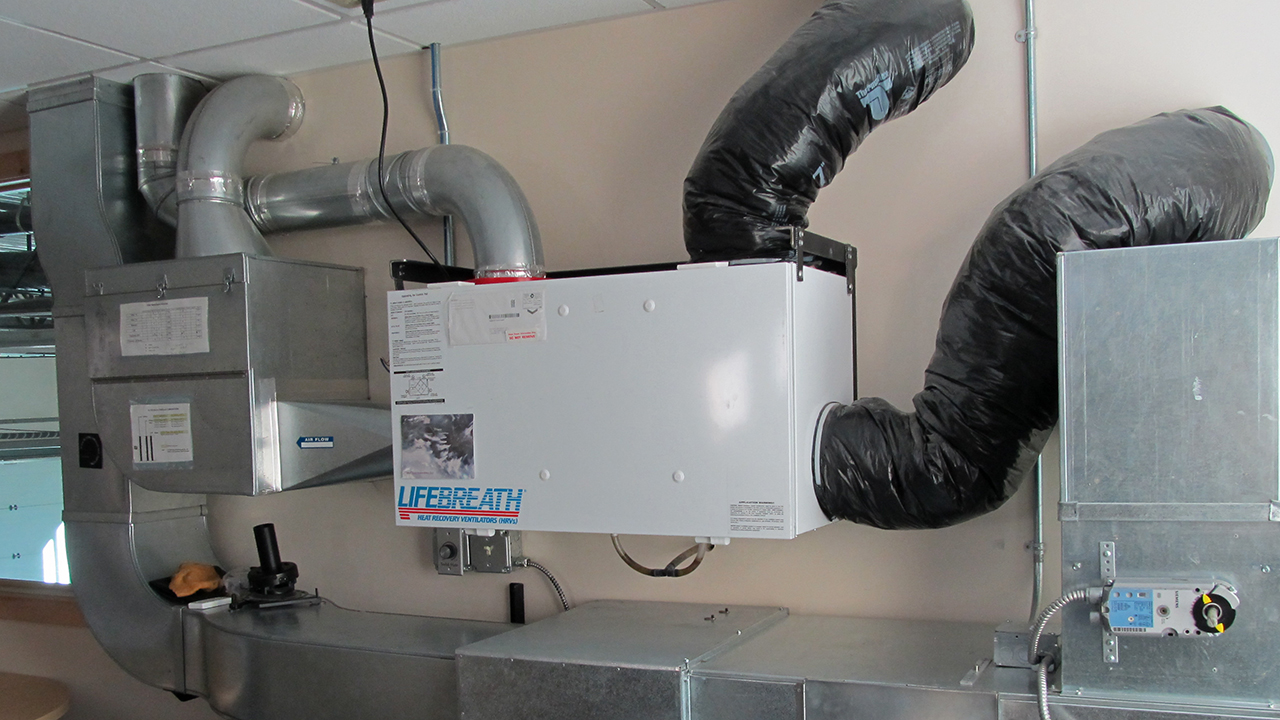Checking out the Benefits of Heat Recovery Ventilation for Energy Efficiency in Homes
Heat Recovery Ventilation (HRV) systems offer homeowners a useful method to improving power efficiency. By redeeming warm from outgoing air, these systems can considerably reduce cooling and heating costs. In addition, they give a stable supply of fresh air, improving interior air top quality and comfort degrees. As house owners consider sustainable alternatives, understanding the nuances of HRV systems becomes increasingly important. What variables should one assess before making such an investment?
Recognizing Heat Recovery Ventilation Solutions

How HRV Improves Indoor Air High Quality

Energy Savings: The Monetary Advantages of HRV
Making the most of energy performance, heat recovery ventilation (HRV) systems offer considerable financial benefits for house owners. By recovering and recycling warm from exhaust air, HRVs substantially lower heating & cooling prices. more helpful hints This modern technology can bring about power cost savings of approximately 30%, depending on environment and use patterns. House owners often notice lowered utility expenses shortly after setup, making HRVs an economically smart investment gradually. In addition, many areas provide rewards or rebates for energy-efficient upgrades, better improving the monetary allure. As power prices proceed to rise, the cost-effectiveness of HRVs comes to be increasingly clear. Generally, the consolidation of HRV systems not only promotes power effectiveness yet also adds to lasting his explanation monetary cost savings for homes.
The Environmental Impact of Heat Recovery Ventilation
A significant ecological benefit of heat recovery ventilation (HRV) systems depends on their capacity to reduce total energy usage. By reclaiming warmth from exhaust air and transferring it to inbound fresh air, HRV systems minimize the need for energy-intensive heating and cooling down techniques. This decrease in power demand contributes to reduce greenhouse gas emissions, as less nonrenewable fuel source is called for to preserve comfy interior temperature levels. In addition, HRV systems enhance indoor air high quality by efficiently trading stagnant air with fresh exterior air, lowering reliance on mechanical air conditioning systems that can hurt the environment. Generally, the execution of HRV systems sustains sustainable living techniques and lines up with global efforts to fight navigate to this website environment adjustment by advertising energy effectiveness in property setups.
Picking the Right HRV System for Your Home
Just how can property owners guarantee they pick the best heat recovery ventilation (HRV) system for their needs? They must assess their home's dimension and layout, as these factors influence air flow demands. Next off, examining the system's effectiveness rankings is essential, as higher scores indicate far better efficiency and power financial savings. Home owners must likewise take into consideration setup and upkeep costs, comparing various brand names and designs for value. Additionally, it is very important to review sound degrees, as some systems operate even more silently than others. Consulting with HVAC experts can give customized suggestions based upon specific home conditions. Checking out user reviews and warranties can aid in making an informed choice, making sure that the chosen HRV system effectively enhances indoor air quality and energy effectiveness.
Often Asked Inquiries

Exactly how Frequently Should I Clean or Preserve My HRV System?
The regularity of cleansing or keeping a warmth recuperation ventilation (HRV) system typically depends on use and environmental factors. Normally, it is advisable to perform upkeep every six months to ensure peak performance and air quality.

Can HRV Systems Help Lower Humidity Degrees Indoors?
HRV systems can properly lower indoor moisture levels by trading stagnant, moist air with fresh, drier air from outside. HRV Heat Recovery Ventilation. This procedure assists preserve a well balanced indoor setting, boosting comfort and protecting against moisture-related concerns
What Is the Lifespan of a Typical HRV System?
The lifespan of a typical heat recovery ventilation (HRV) system differs, typically lasting in between 10 to 15 years. Normal maintenance can extend its efficiency and functional life, guaranteeing peak efficiency throughout its usage period.
Are There Any Sound Worry About HRV Systems?
Noise problems with HRV systems can arise, specifically from follower procedure. Numerous modern-day units are made to decrease sound levels, ensuring they run quietly while preserving effectiveness, which deals with potential disturbances in living environments.
Can I Set Up an HRV System Myself, or Do I Need a Professional?
The private contemplated whether to install the heat recovery ventilation (HRV) system directly or employ a specialist. Typically, while do it yourself installment is possible, competence assurances appropriate performance and compliance with regional building codes, enhancing system effectiveness.